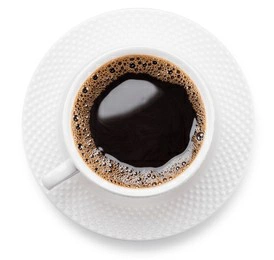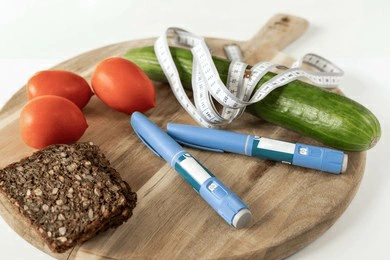What Makes Coffee So Great?
Coffee contains rich polyphenols and alkaloid compounds, which have excellent antioxidant effects. They can help eliminate free radicals in our bodies, benefiting cardiovascular and cerebrovascular health.
Specifically for weight loss, coffee can aid in fat burning, boost metabolism, and reduce water retention.
Which Coffee Should You Drink?
The Best Choice: Opt for black coffee—pure coffee without added sugar or creamer. It contains only coffee grounds or beans.
Other types of coffee with added sugar and creamer not only add extra calories but are also unhealthy.
Of course, if you find black coffee too bitter, you can also try adding pure milk or sparkling water to improve the taste!
How Much Coffee Should You Drink?
For the average adult, consuming up to 400mg of caffeine per day is generally considered safe, which is roughly equivalent to 4-5 cups of 200ml coffee.

Research also suggests that around 3.5 cups of coffee per day may offer the most health benefits, with little additional benefit beyond 5 cups.
If you're simply looking for a boost in alertness, consuming 100-200mg of caffeine per day, or 1-2 cups of coffee, is usually sufficient. There's no need to drink more than that.
Drinking excessive amounts of coffee in one go (like drinking more than a dozen cups in a day) can potentially lead to caffeine overdose. So, while coffee can be beneficial, it's best not to overdo it!
When is the Best Time to Drink Coffee?
It's recommended to drink coffee in the morning or in the afternoon. This can help keep you awake and alert, preventing sluggishness and unintentional snacking.
However, it's best to avoid drinking coffee during meal times. Caffeine in coffee can potentially hinder the absorption of certain nutrients like iron and calcium.
Additionally, since caffeine stimulates the nervous system and can cause excitement, it's not advisable to drink coffee after 4 PM.
Why do you feel uncomfortable after drinking it?

Some people experience symptoms like nausea and increased heart rate after drinking coffee. This is usually due to caffeine intolerance.
For those who are sensitive to caffeine, I suggest trying smaller, more frequent servings of coffee or opting for beverages like lattes that contain less caffeine due to added milk.
However, if even a small amount of coffee causes rapid heartbeat, frequent urination, or insomnia, it might be best to avoid coffee altogether. After all, coffee is merely a perk, not a necessity in life.
Can you drink coffee on an empty stomach?
Whether you can drink coffee on an empty stomach depends on how well your digestive system functions.
If your digestive system is robust, it's generally okay to drink coffee on an empty stomach. However, if your digestive system is sensitive or weak, it's better to have something to eat before drinking coffee.
After all, caffeine can stimulate the intestines, so those with sensitive stomachs should be a bit cautious.
Does coffee stain teeth?
Coffee, tea, red wine, and other staining beverages contain a substance called tannins, which are dark brown compounds.
Long-term consumption of these beverages allows tannins to penetrate into the internal structure of teeth, causing them to yellow. Regular brushing and rinsing alone are ineffective against this type of staining.
If your teeth have already yellowed due to long-term coffee consumption, teeth whitening treatments can be considered. However, if your teeth haven't yellowed yet, here are two preventive measures:
Use a straw: Drinking through a straw reduces the contact between coffee and teeth, thus reducing the risk of staining.
Add milk: Milk contains casein protein, which can bind with tannins in coffee and reduce their ability to stain teeth.
These strategies can help prevent or minimize teeth staining from coffee consumption.
Does coffee cause calcium loss?
There are many factors that affect calcium absorption, such as potassium, caffeine, oxalates, phytates, and so on, which are present in many foods we consume daily. Coffee is not unique or the only contributor to this.
Moreover, each cup of coffee only causes a minor loss of calcium, typically just a few milligrams, and only temporarily.

If you are concerned about the potential calcium loss from drinking coffee, I recommend opting for a latte instead! Using milk, which contains calcium, can help offset any calcium loss caused by caffeine and oxalates without any issues.
(Images from the internet)





